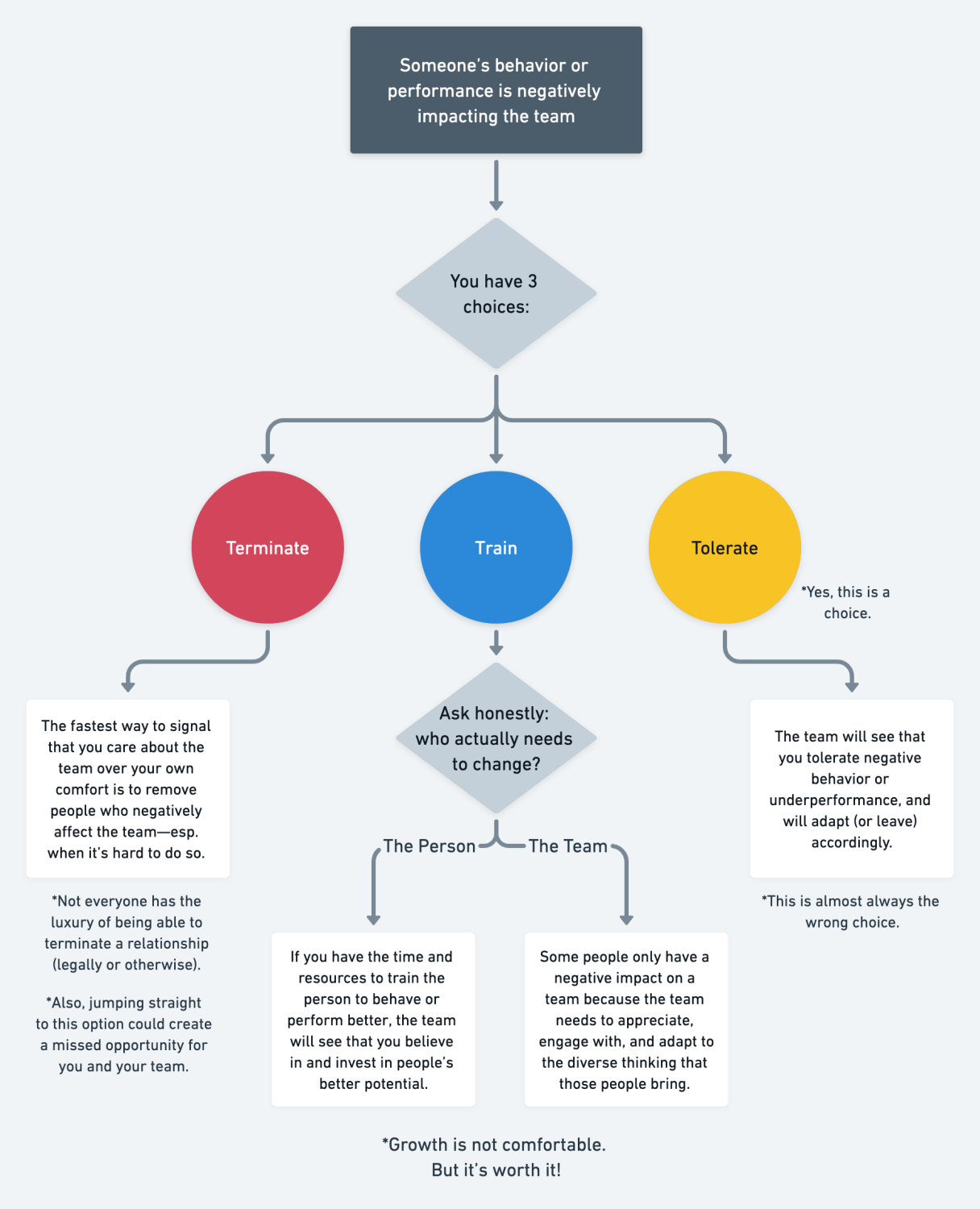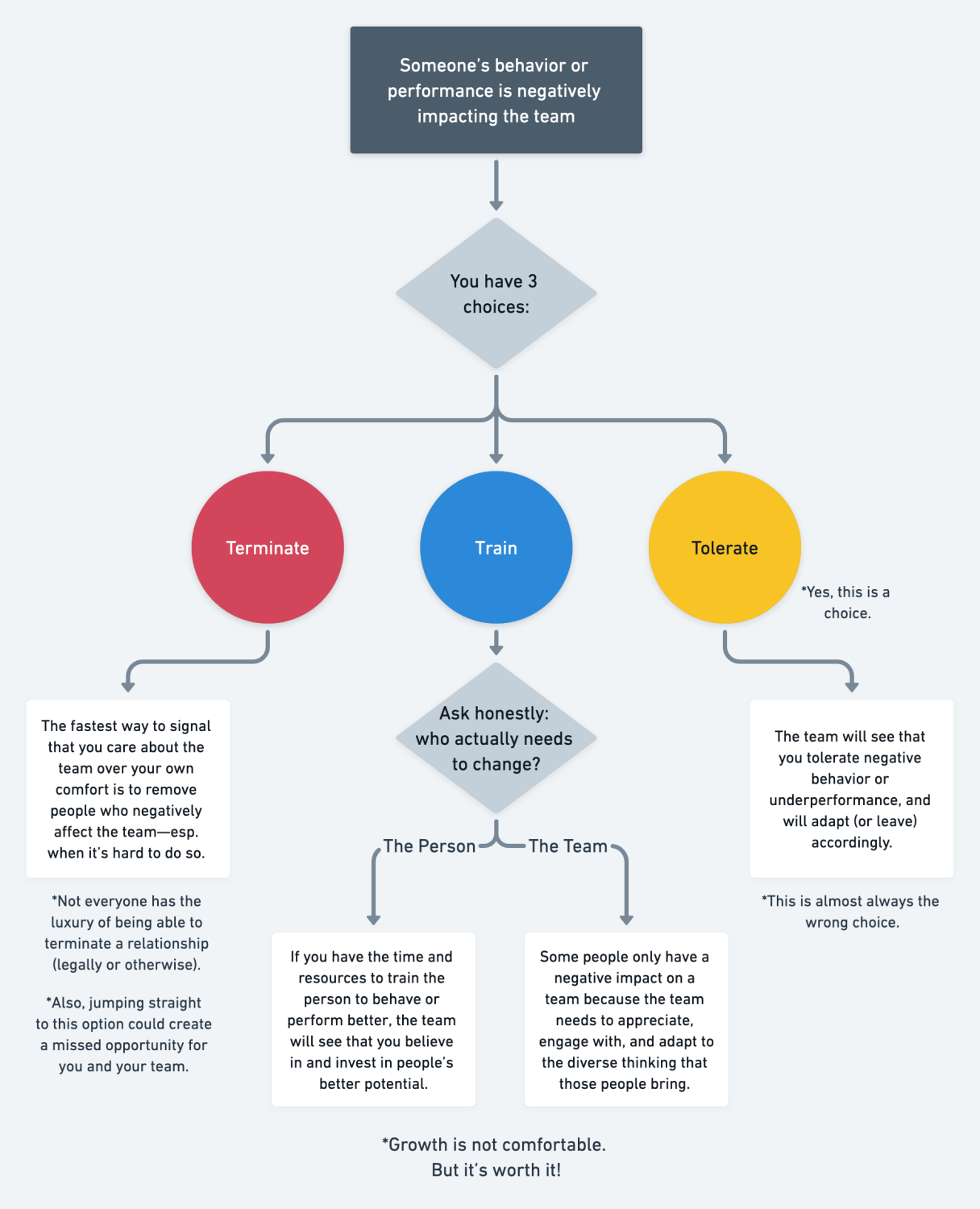1 min read
When Leaders Don't Lead: What To Say When Someone Makes A Mistake
![]() Shane Snow
Jan 15, 2023 1:10:29 PM
Shane Snow
Jan 15, 2023 1:10:29 PM

What to say when someone makes a mistake?
THERE'S A COMMON CHOICE that team leaders make that causes them to "lose" their team. It's the choice that's forced on us any time a team member begins creating a negative impact on the rest of our group.
The negative impact could be underperformance. It could be a behavior. It could be an isolated event. It could be a pattern.
Whatever it is, too often, team leaders make the choice... to do nothing.
And that is a choice.
Tolerating performance or behavior that negatively impacts the team is choosing to signal to the team that you are OK with it.
The team's members then tell themselves stories about why:
- The leader is too chicken to do the hard thing and confront it.
- The leader doesn't care about them.
- The leader is biased.
- Etc.
Whatever the stories are, chances are you're not hearing them out loud—and those stories are costing you the trust and respect of your team.
Years ago, someone told me that the only choices you really have in situations like these are to Tolerate, Train, or Terminate. (I confess, I don't remember where this advice originated, though I suspect it's an adaptation of the 4 Ts of risk management.) I've taken this advice to heart over the years, and actually made a flowchart to remind myself that sometimes the easy way out of this situation is exactly the way to "lose" your team:

The only two good choices we have when an individual is negatively affecting the team is to Terminate the individual (if we can, and if it's smart) or to Train—and this is the important part—either the individual OR the team itself to change.
Often behavior that negatively affects a team is not actually bad behavior, but simply behavior (or ideas, or communication style) that the rest of the team has a hard time processing—or reacting charitably to.
Different ways of working and thinking can create discomfort and conflict—but that doesn't mean they aren't valuable.
Truth is, when we seek diversity for our teams, we're asking for cognitive friction. To prevent that from becoming a negative, we as teams need to develop the intellectual humility to appreciate, engage with, and adapt to diverse thinking.

